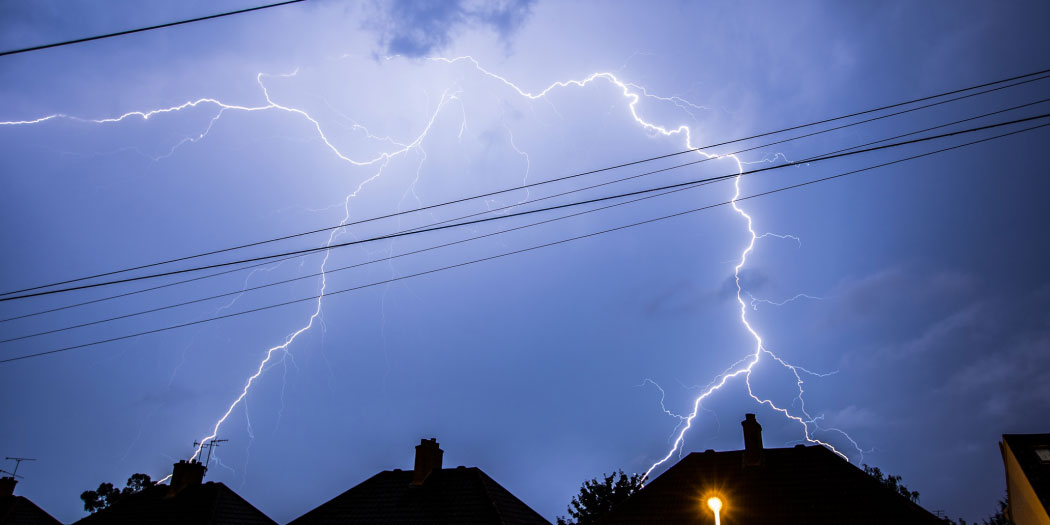A Stroke of Lightning
When we talk about natural catastrophes, we often talk about hurricanes, tornadoes, floods, or other disastrous, news-breaking events. Less often discussed are the seemingly smaller sideshow acts that also follow some of the country’s most vivid and impactful storms.
Often before a thunderstorm even makes it over your head, you either hear it or see it. The hearing doesn’t do much more than alert us, if outside, that we need to get to safety. That or it startles us out of bed in the middle of the night. It’s lightning, the precursor to rolling thunder, that can more so cause swift, jarring damage in addition to the heavy winds and rains of a thunderstorm itself.
Lightning is a completely random effect of a thunderstorm that can happen year-round. However, it’s the warmer summer months that see the most action. If you’ve ever seen the jagged lines on the ground following a lightning strike or the razor edge of a tree limb that’s been abruptly snapped from its trunk, you know lightning can be terrifying. Even more alarming are the budding questionable lightning claim fraud schemes referred to NICB.
Anything from small fires being claimed as lightning strikes, to multiple or duplicate claims from multiple carriers from the same event, to power surges allegedly causing damage are just some of the false claims that could be associated with a lightning strike.
How did we get a conversation going into lightning fraud? From the inquisitive mind of one NICB field analyst in Florida.
Last June, the Insurance Information Institute (III) issued a press release, noting the top 10 states for homeowners’ insurance lightning losses by number of claims. The report notes, “Florida—the state with the most thunderstorms—saw the greatest number of lightning claims in the U.S. in 2022, with 5,504. California, however, had the highest average cost per claim at $36,319, followed by Texas with $25,286.” In total, the release states that a staggering $950 million was paid out in 2022 based on claims that were the byproduct of a lightning event.
“I read the III article and noticed the high-dollar losses, and then looked into NICB data to see if we had QCs,” said Senior Field Intelligence Analyst Kathy Novak.
She then conducted an analysis of questionable claims (QCs) referred to NICB where the word “lightning” appeared in the “referral reason” text. From the period of January 1, 2022, through July 31, 2023, 222 QCs matched the search criteria.
Through further analysis, it was revealed that the top three loss states for lightning QCs during that period were Texas, Georgia, and Florida, accounting for almost 47% of the total loss states by QC count. Some of the top referral reasons were fictitious loss, prior loss/damage, and inflated damage.
The information gleaned from the data was then quickly turned into an NICB Insight on Lightning Questionable Claims and then issued to members and law enforcement. Additional high-level stats and questionable lightning claim fraud schemes can be found within the report.
The saying lightning never strikes in the same place twice couldn’t be further from the truth and neither are the insightful minds of NICB analysts who review one set of data and then take it upon themselves to conduct their own research on the same topic.
